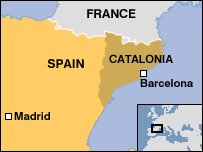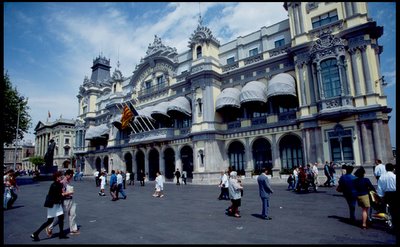
It is, at times, difficult to remember that not all of today's "old" European nations have been around all that long in their current constructions.
Germany, for example, wasn't really Germany until around World War I. Before that it was a lot of separately-ruled Germanic states without a single government. Italy was known as the Kingdom of the Two Sicilies for a long time before it became the country we now know somewhere early in the 20th Century. The same goes for Spain, which we think of as a very old nation because of its powerful status during the subjugation of the Americas.
Historic length, however, is a very subjective thing. If you're old enough, you remember the ups and downs; if you're much younger, you remember only brief spans. One prime example: United Germany became divided Germany right after World War II when the Soviet Union laid claim to half of it. Now it's united again because the Soviet Union split up. Karma.
Spain has been in the news for years for the violent Basque separatist movement and the frequent shootings and bombings that punctuate that northern province's attempt to secede from Spain proper. A Basque independence plan was soundly defeated in parliament earlier this year.
Things are different in the province of Catalonia, with its cosmopolitan capital of Barcelona and its sunny Costa Brava. There, a desire for more autonomy has succeeded. The Spanish parliament has just approved a proposal, 197 to 146, to let the affluent region in northeast Spain call itself a nation -- but still remain a part of Spain, control its taxation policies, and change laws passed by the national parliament.
That may mean a lot of changes for tourists drawn to the city and its cathedrals, Olympic venues, parks and fabled nightlife.
ON THE WEB

Barcelona Waterfront Museum